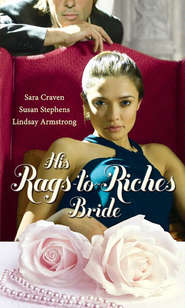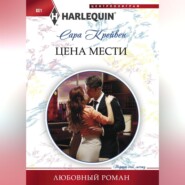По всем вопросам обращайтесь на: info@litportal.ru
(©) 2003-2024.
✖
The Italians: Angelo, Rocco & Stefano: Wife in the Shadows / A Dangerous Infatuation / The Italian's Blushing Gardener
Автор
Год написания книги
2019
Настройки чтения
Размер шрифта
Высота строк
Поля
No, he thought, she would be far happier living on his estate in the hills just outside the capital, and it would be a better environment for the son he hoped for. Or it would be once the air of melancholy following the loss of his mother, which had dulled his own memories of a happy childhood and caused him to avoid the place in recent years, had been banished forever.
His father, turned by grief into a virtual recluse, had suddenly and quite unexpectedly begun a refurbishment programme on the villa itself three years before. It had gone into abeyance on his death, but the time had come, Angelo decided, for it to be revived and completed.
It was odd, he admitted to himself, to be making plans for a woman he didn’t even know as yet, but, as the Contessa Manzini, she would soon learn the duties and responsibilities of her new status and, he hoped, the pleasures of it too as he had every intention of being both generous and considerate.
She might not have his love, the sweet and passionate emotion that had held his parents steadfastly in thrall to each other, because he doubted whether he was capable of such feelings, but he could and would offer her, at the very least, respect along with every material comfort she could wish for. And a decent show of ardour should not be too difficult to feign. Besides, if she was pretty enough, he might not have to pretend, he told himself, grimacing inwardly.
He’d stayed with friends in Tuscany the previous weekend, and partnered a girl called Lucia in an impromptu tennis match. Good legs, he thought judiciously, a figure that curved in all the right places, and dark eyes that had gleamed in his direction more than once. He had not asked for her telephone number but that was an omission that could easily be rectified with an email to his host.
On the other hand, each time she’d played a bad shot, she’d giggled and he’d begun to find this irritating. The thought of having to listen to it morning, noon and even night was not appealing.
He sat up abruptly, cursing under his breath. He was hardly perfect husband material, so why should he expect to find the perfect wife? And what made him think Lucia would even want him?
For once, and perhaps understandably, he was finding relaxation difficult, so he abandoned the sauna, showered briskly, pulled on jeans and a polo shirt and went to the salotto.
As he’d anticipated, both phone messages were from Silvia, requesting him to call her. And her letter proved to be in similar vein but rather more demanding, he noted, his lips tightening. Clearly his absence in Tuscany and his omission to contact her immediately on his return had not pleased her. She was becoming distinctly proprietorial, and although he would have his regrets at terminating their association, he realised he had no choice.
He did not belong to her, he thought coldly, pouring himself a whisky. To her, or any other woman, and he never would. He had seen what that could do. Had seen his father become a silent stranger, the heart and spirit torn out of him after his wife’s death—little more than a sad ghost in a house which had once been filled with sunshine and laughter.
Had found himself, scarcely out of boyhood, excluded from his own grief in the face of his father’s desolation.
And without the tenderness and support of Nonna Cosima, who had taken him into her own home, he would have been left very much alone.
As he emerged from the darkness of that time, he’d sworn that he would never allow anyone to make him suffer like that. And nothing had happened since to persuade him to change his mind.
His marriage would be a practical arrangement without illusions, he vowed silently, and he would set himself to make it work.
Therefore, as a beginning, he would decline Silvia’s suggestion that as Ernesto would be away the following weekend, they should take advantage of his absence at some discreet albergo in the wilds of Umbria or Reggio Calabria.
Instead, he thought, crumpling the note in his hand, I will be spending the time in close consultation with the builders at Vostranto, so I shall call her tomorrow and make my excuses.
And after that, I shall also ask Ottavio for Lucia’s phone number.
‘No,’ said Ellie. ‘It’s very kind of Madrina to invite me, but I’ve already made my plans for that weekend. I’m sorry, Silvia.’
‘You don’t sound it.’ Her cousin leaned back in her chair, pouting. ‘I suppose you’re off to bury yourself at Nonna Vittoria’s shack as usual.’
It might only be a small house, but it was hardly a shack, Ellie thought drily. And Silvia clearly hadn’t thought so when she discovered that their grandmother’s will had left Ellie in sole possession of what could be an eminently desirable property in a charming fishing village on a beautiful coastline. She had raged about the total unfairness of the bequest for weeks if not months, accusing Ellie of wheedling her way into Nonna Vittoria’s good graces.
By which Ellie supposed she meant visiting her grandmother regularly and remembering her at birthdays and Christmases. Something Silvia’s busy social life had overlooked most of the time.
‘And how can you even think of it when you could be staying in the lap of luxury at the Villa Rosa?’ Silvia went on.
‘Perhaps I don’t find the lap of luxury particularly comfortable,’ Ellie said drily. ‘Especially when I’m aware that I’m the only person present who’s actually an employee instead of an employer.’
Silvia waved a languid hand. ‘Oh, you’re far too sensitive, cara. Besides Madrina adores you, and you owe her a visit. She has said so, and will be so upset if you refuse.’ She paused. ‘And you could do me the most enormous favour too.’
Ellie’s hand stilled in its task of refilling their coffee cups. Ah, she thought, without surprise. Now we’re coming to it.
She said, ‘Oh God, Silvia, you haven’t been losing money at bridge again, not after the things Ernesto said last time.’
‘Oh, that.’ Silvia looked down, playing with the emerald and diamond ring on her wedding finger. ‘I’ve hardly touched a card for months. Truly. Anyone will tell you.’
‘Except that I don’t know anyone to ask,’ Ellie returned, scenting an evasion. ‘And I have no money to bail you out, so don’t even think about it.’
‘That’s not what I’m asking,’ Silvia denied swiftly. ‘It’s just that—well—Ernesto is being a little silly at the moment about my going away without him, even to see my own godmother, and if he knew you’d be there too, I’m sure he’d change his mind.’
Ellie brought over the fresh coffee, placing the cup on the table beside her cousin’s chair.
She said slowly, ‘It’s not like him to play the heavy husband. Silvia, you’re sure that you’re not the one who’s being silly?’
Silvia flushed angrily. ‘And what makes you an authority on married life? I wasn’t aware that you even had a boyfriend.’
Ouch, thought Ellie, remembering at the same time that attack had always been Silvia’s favourite form of defence. Also, that it had been several weeks since her cousin had sought her company—and then only at the last minute to make up the numbers at a dinner party, where, to add to her usual shyness, she’d felt badly dressed and totally out of her depth.
Especially when Silvia had been at her sparkling best, eyes gleaming like her jewellery, and her mouth curved on the edge of a smile all evening, and the centre of everyone’s attention. As if, Ellie thought, a fire had been lit inside her.
In fact, on that occasion, Ellie had taken her godmother’s place, as the Principessa Damiano had been suffering from a heavy cold. But at least she’d only had to give up a few hours—unlike this new request, where she’d be committed from Friday evening until late afternoon on Sunday. Not a prospect she relished, however fond she was of her tiny, exquisite godmother fluttering like a butterfly in the pale draperies she affected.
Although that, Ellie had always suspected, was just a façade, concealing a will of reinforced steel. Which was why she’d probably used Silvia to back up her invitation.
But Ellie was always conscious that Madrina inhabited a world where Silvia belonged, but she herself did not. They might be first cousins, but chalk and cheese didn’t even come near it.
Silvia, the elder by almost a year, was silvery fair, with green eyes that looked at the world from the shadow of extravagant lashes, a small straight nose and a frankly sexy full-lipped mouth. Her chief ambition from childhood had been to marry a rich man and she’d achieved it effortlessly, although Nonna Vittoria had frowned and tutted over her choice, murmuring that cara Silvia needed to be held in check, and that her fidanzato, though estimable, might not be the man to do it.
Ellie, on the other hand, had often thought, without rancour, that she resembled the negative of a dramatically coloured photograph. Her own hair was the shade generally known as dirty blonde, and she was pale-skinned and slender. Nonna Vittoria always told her she had unusual eyes, but the rest of her features were nothing to admire. Nose too long, she thought. Mouth too serious.
However, on the plus side, she enjoyed her work, liked most of her colleagues and had a small group of friends of both sexes with whom she ate out and attended films and concerts.
She supposed it was a relatively sedate existence, but it suited her. Yet so did her own company, and the times when she could escape to the coast and the waiting Casa Bianca were among her happiest.
She couldn’t let the opportunity to spend the weekend there pass. Could she?
Yet, as she drank her coffee, she sent a covert glance at her cousin. Something was wrong. She knew it. The shining brightness of a few weeks ago had become restive—even edgy.
She said quietly, ‘Silvia, I don’t want us to fall out but I need you to be honest with me. Why do you want me to accept Madrina’s invitation?’
Her cousin looked sulky. ‘It is nothing. An absurdity. A man Ernesto feels has paid me too much attention. He has even started to think that I am meeting this man and not going to
Largossa at all. But if he knows that you and I will be at the Villa Rosa together, his mind will be at rest.’
Ellie frowned. ‘Wouldn’t it be simpler if he accompanied you himself?’
Silvia spread her hands. ‘He cannot. There is a client—an important man—with tax difficulties which must be settled pronto. So Ernesto must handle the case personally, even if he has to use the weekend.’
Ellie could sympathise with the client’s needs. Italy’s labyrinthine tax laws were not for the inexperienced or the fainthearted.
And yet—and yet …













